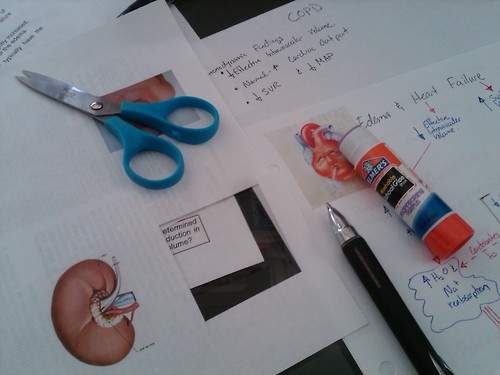Kind of freaking out over exams and too tempted to use the essay rewrite service already now. Exams start in a little over a week. Exams will take two weeks. Then I’ll have 2 weeks to study for Step 1, which is one of the licensing exams.
The Pathophysiology exam is on the 18th. It’s a cumulative exam with part one in the morning and part two after lunch. The picture above is the course syllabus. Close to 600 pages of the mechanism of diseases. I flipped through it and found a page that had zero markings. No highlighting, no annotations.
It freaked me out cause I thought I should know something about that topic. So I quickly turned to look at other marked up pages like the one pictured above.
Blah.. back to studying.









